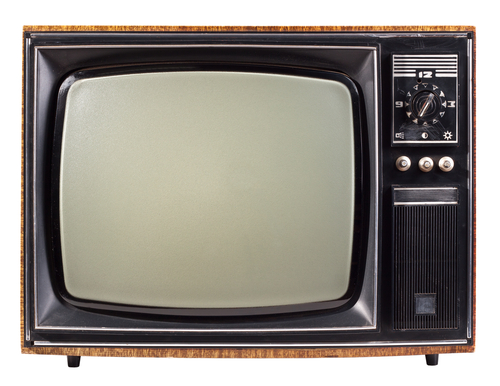|
Review: Denzel Washington skillfully pilots ill-fated 'Flight'
Posted on: 11/02/12
Portraying a troubled pilot, the actor soars in a Robert Zemeckis film that impresses technically but is weakened by movie trope repetition..jpg)  A commanding performance elevates a film, but it can expose it as well, underlining that the surrounding material is not up to the standard it sets. That's the case with "Flight," a solid, often engrossing film that doesn't engage us overall the wayDenzel Washington's work does. Unquestionably one of America's best actors, Washington has increasingly relished playing morally ambivalent characters, and in this film, "Forrest Gump" director Robert Zemeckis' first live-action effort in a dozen years, he gets to play one of the most intriguing, Whip Whitaker. Tattooed, flabby and catastrophically hung over, Whitaker is introduced lying face down in an Orlando, Fla., hotel room bed after what has clearly been a dissipated night of sex,substance abuse and very little sleep. So it is dismaying to discover not only that this man is a pilot in good standing for mythical SouthJet airlines, but also that he is scheduled to fly 102 souls to Atlanta in a raging thunderstorm that very morning. PHOTOS: Robert Zemeckis' cinematic innovations It takes a brisk line of cocaine just to get Whitaker out of bed and a jolt of in-cabin oxygen combined with a clandestinely self-mixed pitcher of vodka and orange juice to clear his head. With so many intoxicants in him, it's amazing that seeing straight is so much as an option. But even stoned out of his mind, Whitaker can fly like Sully Sullenberger if the need arises. When his aircraft inexplicably plummets into an uncontrolled dive and seems headed for unmitigated disaster, Whitaker puts his plane through some highly unorthodox maneuvers and saves the day. "Flight" is at its best during these scenes of complete midair chaos. Not only is Washington completely convincing at the controls, but Zemeckis, working with visual effects supervisor Kevin Baillie and special effects supervisor Michael Lantieri, uses his familiarity with all things digital to create an edge-of-seat sequence capable of convincing the most zealous frequent flier to swear off air travel for life. Not every single passenger, as it turns out, survives these heroics, and as pilots union representative Charlie Anderson (a well-cast Bruce Greenwood) tells Whitaker, death demands the assigning of responsibility. With a full-blown National Transportation and Safety Board investigation on the horizon, the question becomes whether Whitaker's bravery will be overshadowed by his formidable blood-alcohol count, whether despite his lifesaving exploits he will face lawsuits and even prison time for criminal negligence because of his actions. Washington, as always, is expert at creating a complex character who is both wary and worried, a man who not only flies airplanes but is in flight from his life. Unfortunately, the story that surrounds Whitaker is not as subtle or involving as his performance. "Flight" gives the impression that it is going to concern itself with the nature of heroism, with the difficulty of reconciling heroic actions with fallible human qualities, but instead it heads in a more familiar and formulaic direction: Can Whitaker confront his demons and stop drinking long enough to avoid becoming his own worst enemy? This is territory that movies have visited innumerable times before, and "Flight" reminds us that though he's adventurous on a technical level, Zemeckis (whose last dramatic film was "Cast Away") tends to be relentlessly mainstream in terms of drama. As written by John Gatins (whose most recent screenplay was "Real Steel"), "Flight's" potboiler story line has a hard time rising above the ordinary once that plane hits the ground and Whitaker's life skids out of control. Given that Gatins has an acknowledged history of difficulty with alcoholism, it is perhaps inevitable that "Flight" plays at times like a feature-length infomercial for the powers of AA. Its portrait of the redemptive journey, however, is less involving than the individual who takes it. Although none of "Flight's" characters holds us the way Whitaker does, some fine acting by the film's supporting actors helps bring them alive. Don Cheadle is appropriately spit and polish as attorney Hugh Lang, brought in to help Whitaker with his defense, and John Goodman is outrageous as only John Goodman can be as Whitaker's always available personal Dr. Feelgood. More problematic is the role of Nicole Maggen, a young woman who faces an addiction crisis of her own. Because she's recovering from a near-fatal heroin overdose at the hospital that's treating Whitaker, it is movie-inevitable that her life and the pilot's will intersect. Capable British actress Kelly Reilly ("Mrs. Henderson Presents," "Sherlock Holmes") takes on Nicole, Georgia accent and all, but the character's ups and downs, like the plot's, are finally too schematic for the film's good. Fortunately, when all else fails, "Flight" turns to Washington. His ability to convey the agony of a soul in torment never lets us down, even if the film that surrounds him never rises to his heights. COMMENTS
Be the first to post a comment! Post A Comment:

|
.gif)



.jpg)

